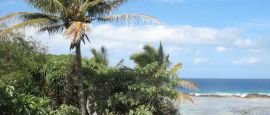Tonga History, Language and Culture
History of Tonga
The ruling family of Tonga, the last remaining Polynesian kingdom, can be traced back more than 1000 years, but human habitation of the islands is thought to dates back as far as 1500BC. The first European explorers were Dutch and arrived in 1616 becoming frequent visitors by the time the British seafarer Captain Cook dubbed the archipelago the Friendly Islands in 1773. The adoption of Christianity by the ruling family which followed the arrival of Methodist missionaries in the 1820s and an overall policy of accommodation with the British – then the principal imperial power in the area – meant that the islands were not formally colonised. King Taufa’ahau Tupou I, from whom the present ruler is descended, was the first chief to rule over all of Tonga when he united the islands in 1831. He also introduced representative government to the islands during his reign. A Treaty of Friendship was signed with the British in 1879 affording Tonga the unique status of a 'protected state' (as distinct from a Protectorate, which allowed for less autonomy in government). However, although Tonga never surrendered its sovereignty, a Treaty of Friendship with the British subsequently determined its status as a protectorate in 1900. A flu pandemic killed some 1800 Tongans in 1918. King Tupou IV, the grandfather of the current king, presided over the greatest change in Tonga’s constitutional status in 1968 when the islands assumed complete responsibility for internal affairs, before being granted full independence in 1970. The king pursued a uniformly pro-Western foreign policy, including (unusually for the region) expression of support for French nuclear testing in the Pacific.
The legislative reforms of 2010 paved the way for Tonga to become a recognised constitutional monarchy with free elections and the pro-democracy movement campaigns for a more representative Parliament though, telling, not for the abolition of the monarchy. Tongans enjoy free education for all and access to a system of national health care. Land ownership is protected in law and sale of land to foreigners is forbidden, although it can be leased.
Did you know?
• Of Tonga’s 169 islands, 36 are inhabited.
• In 2014, luger Bruno Banani became the first athlete to represent Tonga at the Olympic Olympics in Sochi. He came 32nd in the men’s luge.
• Each day Radio Tonga begins broadcasting with a recording by the Tongan nobleman Ve’ehala, a celebrated virtuoso of the nose flute.




 You know where
You know where